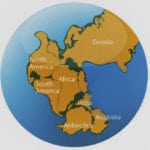 Mysteries
Mysteries  Mysteries
Mysteries  History
History 10 Surprising Stories About the Texas Rangers
 Humans
Humans 10 Philosophers Who Were Driven Mad by Their Own Theories
 Miscellaneous
Miscellaneous 10 Video-Game-Worthy Weapons and Armors from History
 Weird Stuff
Weird Stuff 10 Psychics Who Accurately Predicted Wartime Events
 The Arts
The Arts 10 Pieces of Art Inspired by a Broken Heart
 Health
Health 10 Science Fiction-Sounding New Medical Treatments
 History
History 10 Surprising Facts About the Father of Submarine Warfare
 Space
Space Ten Astonishing New Insights into Alien Worlds
 Weird Stuff
Weird Stuff 10 Bizarre Summer Solstice Rituals Still Practiced Today
 Mysteries
Mysteries Top 10 Haunting Facts About the Ghost Ship MV Alta
 History
History 10 Surprising Stories About the Texas Rangers
 Humans
Humans 10 Philosophers Who Were Driven Mad by Their Own Theories
Who's Behind Listverse?

Jamie Frater
Head Editor
Jamie founded Listverse due to an insatiable desire to share fascinating, obscure, and bizarre facts. He has been a guest speaker on numerous national radio and television stations and is a five time published author.
More About Us Miscellaneous
Miscellaneous 10 Video-Game-Worthy Weapons and Armors from History
 Weird Stuff
Weird Stuff 10 Psychics Who Accurately Predicted Wartime Events
 The Arts
The Arts 10 Pieces of Art Inspired by a Broken Heart
 Health
Health 10 Science Fiction-Sounding New Medical Treatments
 History
History 10 Surprising Facts About the Father of Submarine Warfare
 Space
Space Ten Astonishing New Insights into Alien Worlds
 Weird Stuff
Weird Stuff 10 Bizarre Summer Solstice Rituals Still Practiced Today
10 Reasons Alexander The Great Was Not So Great
Alexander the Great may have gone down in history as one the the greatest ancient kings of all time. After all, we now refer to him as the Great. But while his legacy is that of the greatest man to have ever lived and conquered, is he as great as history remembers?
10 He Inherited Everything
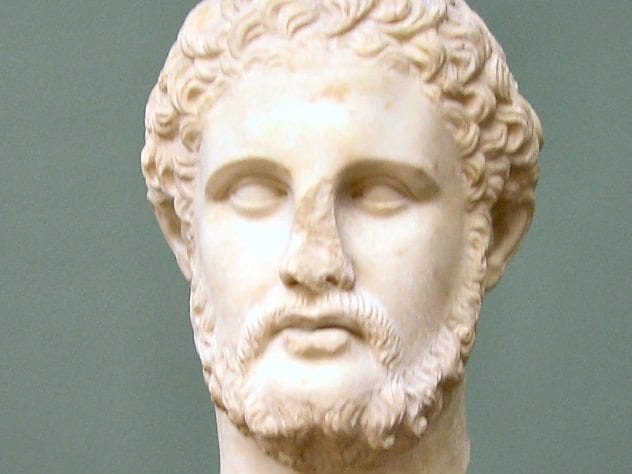
Alexander was the son of King Phillip II. Phillip was responsible for getting Alexander’s kingdom, Macedonia, on the radar when the two main powers were the Greeks and Persians. Phillip was able to gain control of Greece by training his troops to maneuver in strict formations, armed with long pikes and using cavalry as a strike force. This style of fighting was based off the Greek phalanx and would be the basis of Alexander’s army.
Alexander was handed a great set of cards by his father, who created the foundation of the Macedonian kingdom. Considering that it was Phillip who originally brought peace to the Macedonians, created the military force, and gained power over Greece, he was the real mastermind of Macedonian power, and Alexander was lucky enough to ride on the coattails of his father’s work.
9 Conquering Greece Was Easy
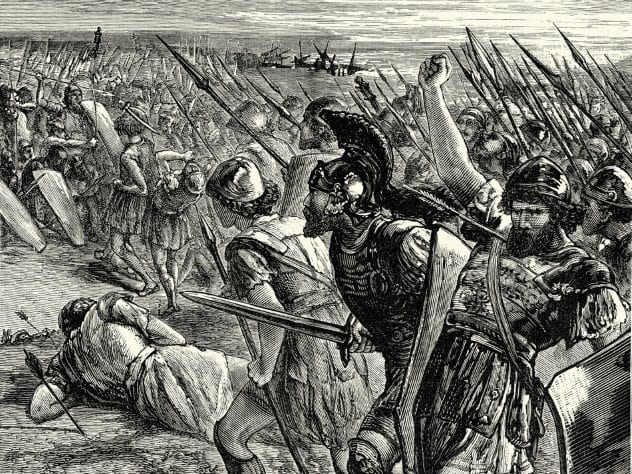
Alexander did not conquer the Greece known for such heroic efforts as the Battles of Thermopylae or Marathon. In fact, he conquered the civil war–stricken, disbanded city states that occupied the land of Greece. The most powerful city states, most notably Athens and Sparta, took the brunt of the Persian invasion and started to war against each other for power in Greece. The great Greek unity that helped to hold off the Persians was broken, and the Greek armies were weak from constant war.
So when Alexander took over his father’s kingdom and demanded Greek loyalty, they had no choice but to do so—not because of Alexander’s military prowess but because of their own weakness.
8 He Was Handed Much Of The Land He Conquered
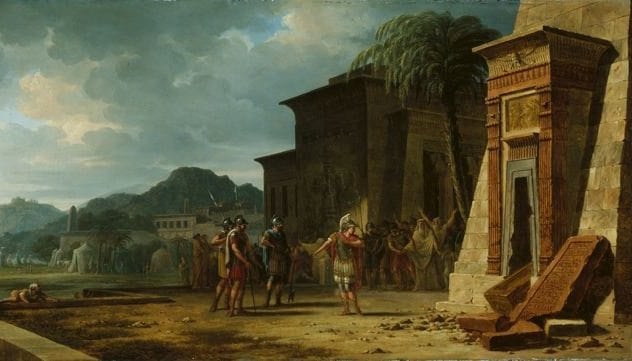
Many of the lands that Alexander conquered were more or less given to him without much resistance. We’ve already covered that Alexander’s father was truly the one who took control of the Greeks, but we will now look at a couple of other “conquered nations” that Alexander may not deserve full credit for.
When Alexander went south to conquer the lands of Egypt, he was met with essentially no opposition. The Egyptians felt united with Greece in their struggle against the Persian Empire, so when Alexander came, they basically handed him the throne.
Even when battling with the Persians, Alexander’s great reputation allowed him an advantage. The Persian troops were so frightened that many of them didn’t follow their commands. The weak points created by these disobedient troops made an organized defense impossible for the Persian forces, which would eventually fall to Alexander.
7 He Cheated The Gordian Knot
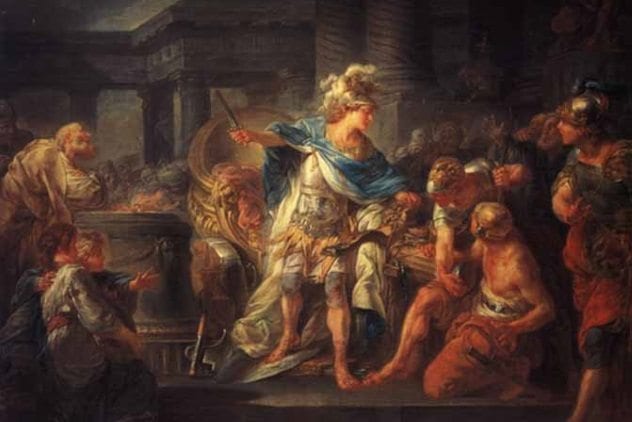
Alexander’s reputation made him out to be the most powerful military leader the world would ever see, which allowed him to take Egypt with little to no opposition and struck fear into the hearts of his enemies. A large part of his reputation was because of his success with the Gordian Knot. It was prophesied that Alexander would conquer all of Asia for loosening it. This brings us to our next entry: Alexander may have cheated the Gordian Knot.
While historical references do not completely agree on his method (though most say he did in fact use his sword in some manner or another), it is a widely held belief that instead of untying the knot that would show his destiny, he became frustrated with it. Alexander pulled out his sword and cut the knot in two. While it was an awesome display of his character and showed his refusal to lose, the ancient prophets probably didn’t envision that particular method of loosening the knot.
6 He Was A Drunk
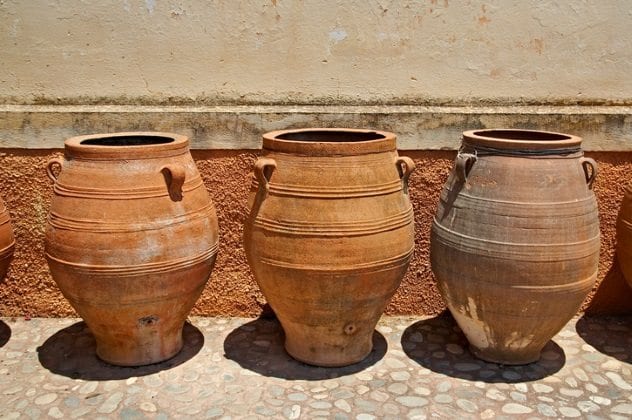
Alexander the Great liked to party . . . a lot. He was known to get so hammered that his doctors were concerned for his health. This is a guy who survived fighting in the front lines of many battles, including getting hit so hard on the head it cracked his helmet in two, and his doctors were worried that alcohol would be his downfall. In fact, eventually it would be.
It would be hard to argue that Alexander’s partying affected his empire or that he was unable to be successful because of his alcoholism. He did create the largest empire the world had seen at that point, after all. However, we can attribute his alcoholism to his early demise. When partying one night, he was given a large glass of wine. Alexander chugged it and shrieked aloud in pain. His health rapidly declined until he died just ten days later.
5 He Was An Egotistical Maniac
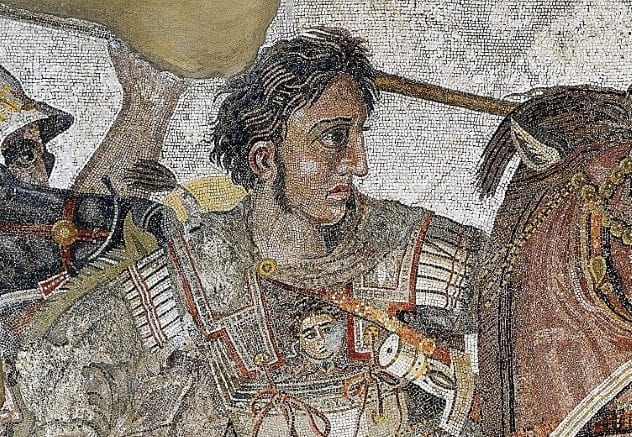
Alexander thought that since he was so successful, it must mean that he was the son of Zeus. When he was forced to take his first and last break from conquest after his troops mutinied in 326 BC, he declared that he should receive the honors of a god. Many of his city states obliged and sent him religious delegations.
Alexander was so full of himself he thought he wasn’t just better than the mythical war heroes, such as Achilles, who motivated him but that he was the infallible son of God. On top of this, he thought himself so important that he founded more than just one or two cities named after him. According to the Roman historian Plutarch, Alexander founded no less than 70 cities after himself, calling them all Alexandria.
4 His Legacy Could Be Made Up
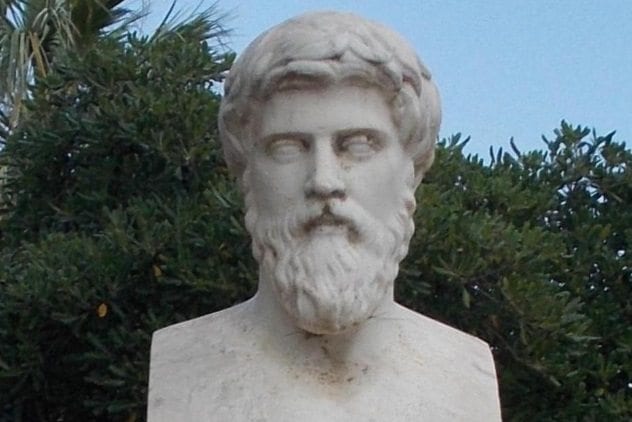
The only primary sources on Alexander’s life that remain were created after his death. In fact, most of our information about Alexander was written by historians who lived hundreds of years after him. Many of these authors had intentions other than to retell history factually. Many wanted to draw moral lessons or create parallels to modern leaders, such as Plutarch or Arrian. Others wanted to show off their writing skill and tell an entertaining story, like Curtius Rufus.
Thus, many of the great speeches that Alexander supposedly gave as well as the great stories of his conquest could have been embellished or even completely made up.
3 He Didn’t Govern His Empire
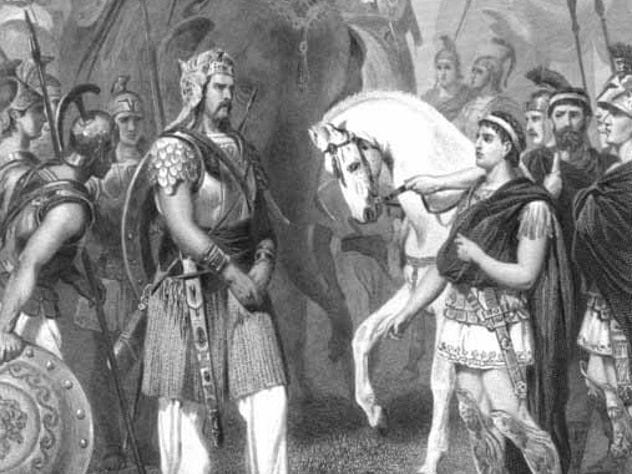
Alexander was no doubt a great military leader, and while his prestige may have been embellished, he did nevertheless create the largest empire the world had seen to date. However, his empire wasn’t even necessarily governed by him. When he conquered a new land, he would leave the traditional administrative system in place.
In one famous battle, the Battle of Hydaspes, Alexander not only let the king, Porus, continue to rule his land, but he gave him more land to rule. He then would place cities and troops within the land to ensure loyalty. By appeasing local rulers, he gained their loyalty, and his empire was ran for him. Although Alexander died too early for his empire to have truly been tested, when you take into account that he didn’t create the Macedonian-Greek superpower and only spent his time leading military expeditions, his political ability and experience was zero.
2 He Didn’t Plan For The Future
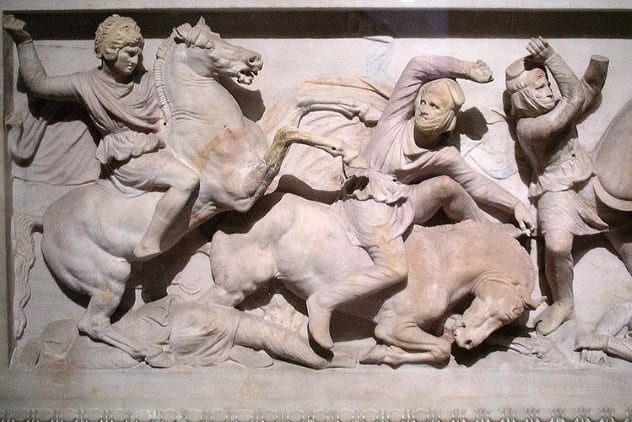
On top of not really governing his empire while he lived, Alexander simply did not care about its future, either. He didn’t bother to father an heir to his throne or to set up any sort of government, and on his deathbed, he claimed that his kingdom would belong to “the strongest.” His last words were, “I foresee a great funeral contest over me.”
To Alexander, all that mattered was his own power. When he died, his entire kingdom collapsed, and his land was divided into new kingdoms. These kingdoms were at constant war with each other for power. The new rulers had to be ruthless to maintain their self-proclaimed succession to Alexander. The success of the new kingdoms depended on creating a strong military and maintaining order. These kingdoms would slowly lose power due to the constant disunity and would eventually give rise to a new superpower: Rome.
1 He Was Greedy
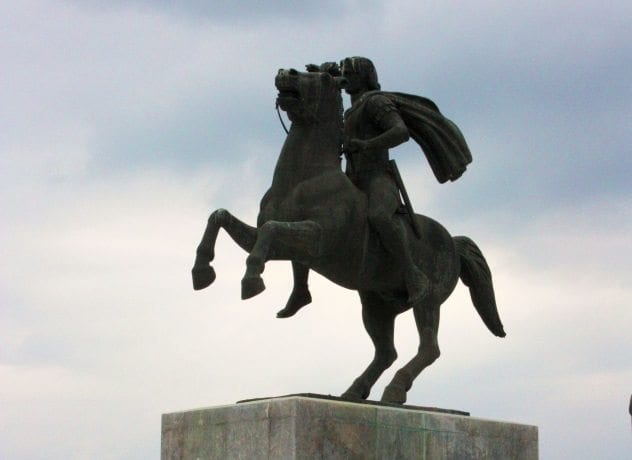
Even though he was handed most of his accomplishments, and he was the worst ruler ever, Alexander’s real downfall was his greed. He wasn’t content with his title of king of Macedon, pharaoh of Egypt, king of Persia, and ruler of the Greeks. Instead, he wanted to continue until he was king of the world. He wanted not just to outdo every leader before him but even to best Greek mythology. He wanted to be more famous than Achilles, and as previously discussed, he considered himself a god.
Alexander wouldn’t slow down even to father an heir, and when his troops came up against the monsoon season, he marched them through it for 70 days. The troops eventually mutinied and forced Alexander to turn back. After reaching the safety of the Persian heartland, he began to plan the invasion of the Arabian Peninsula and North Africa. Before he could launch his next expedition, he fell ill and died.
Perhaps if Alexander would have slowed down a little and created a more stable kingdom, he could have lived a long, prosperous life, perhaps conquering all of Asia or at the least setting the stage for his heir to rule the largest empire the world had ever seen. Instead, he ran his troops and himself into the ground, and his legacy would be done forever.
Forest is an avid student. He enjoys taking time off hiking, hanging out at the beach, and generally enjoying the nice weather to finding more time to cram for his upcoming exam.


